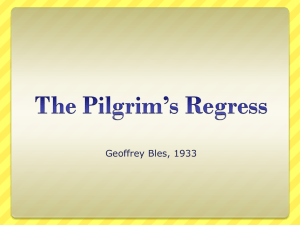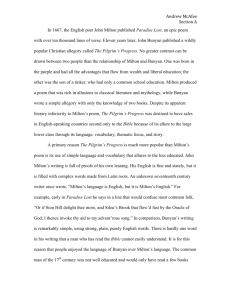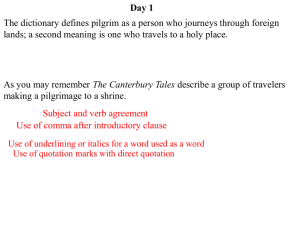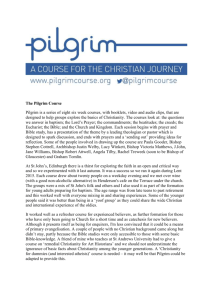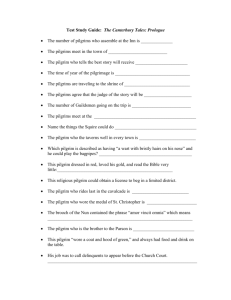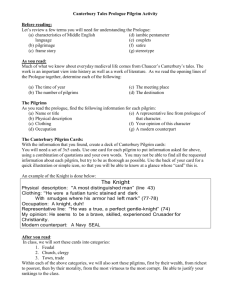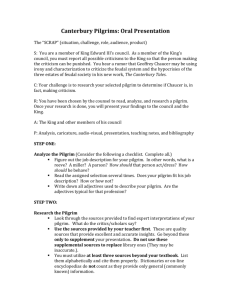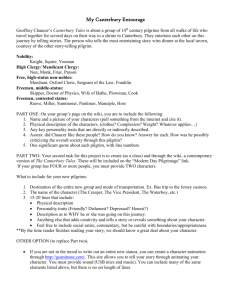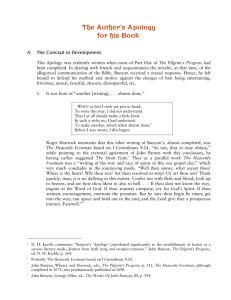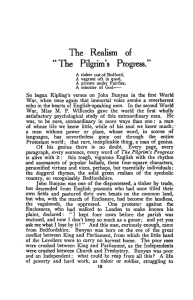Lambert Wang Section B 4/29/13 Rewrite: Comparison between two
advertisement
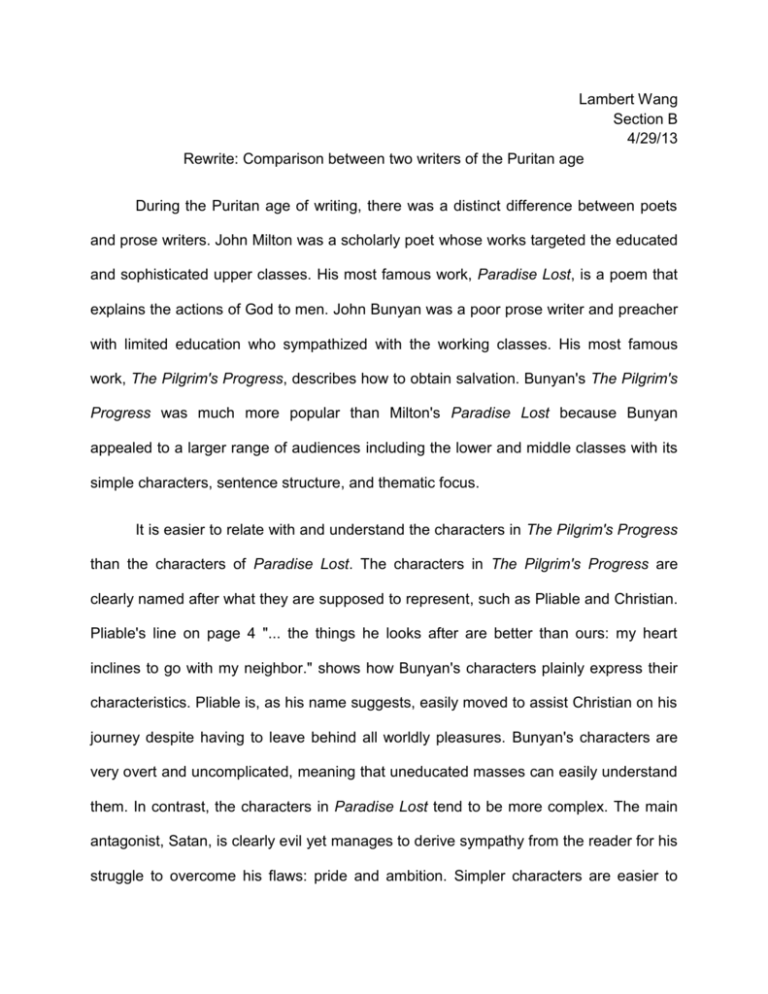
Lambert Wang Section B 4/29/13 Rewrite: Comparison between two writers of the Puritan age During the Puritan age of writing, there was a distinct difference between poets and prose writers. John Milton was a scholarly poet whose works targeted the educated and sophisticated upper classes. His most famous work, Paradise Lost, is a poem that explains the actions of God to men. John Bunyan was a poor prose writer and preacher with limited education who sympathized with the working classes. His most famous work, The Pilgrim's Progress, describes how to obtain salvation. Bunyan's The Pilgrim's Progress was much more popular than Milton's Paradise Lost because Bunyan appealed to a larger range of audiences including the lower and middle classes with its simple characters, sentence structure, and thematic focus. It is easier to relate with and understand the characters in The Pilgrim's Progress than the characters of Paradise Lost. The characters in The Pilgrim's Progress are clearly named after what they are supposed to represent, such as Pliable and Christian. Pliable's line on page 4 "... the things he looks after are better than ours: my heart inclines to go with my neighbor." shows how Bunyan's characters plainly express their characteristics. Pliable is, as his name suggests, easily moved to assist Christian on his journey despite having to leave behind all worldly pleasures. Bunyan's characters are very overt and uncomplicated, meaning that uneducated masses can easily understand them. In contrast, the characters in Paradise Lost tend to be more complex. The main antagonist, Satan, is clearly evil yet manages to derive sympathy from the reader for his struggle to overcome his flaws: pride and ambition. Simpler characters are easier to understand thus allowing a wider range of audiences, including the middle and lower classes, to enjoy The Pilgrim's Progress over Paradise Lost. The prose writing style of The Pilgrim's Progress is more popular with the working classes than the poetic style of Paradise Lost. Bunyan had received only an elementary education, making it difficult for him to write anything too complex. The sentences in The Pilgrim's Progress follow no rhythm or pattern and are there to simply deliver the story. Bunyan wrote The Pilgrim's Progress to spread biblical themes conveyed in a way that anyone can read and understand them. In contrast, Milton had been given a thorough and profound education. Paradise Lost was written in iambic pentameter, as opposed to the simple prose of The Pilgrim's Progress. The complicated poetic style of Paradise Lost was preferred by the educated and sophisticated upper class, while the simple yet effective prose style of however The Pilgrim's Progress made it easily understood by the general public. The Pilgrim's Progress has a theme that is more appealing to the average man than Paradise Lost. The story in The Pilgrim's Progress is more relevant and applicable than the story in Paradise Lost. In his work, Bunyan shows how the average Christian man can obtain salvation. The Pilgrim's Progress incorporates many biblical themes which many people could recognize and appreciate, such as Christian's being weighed down by his burdens in the slough of Despond on his way to heaven on page 6. In addition, the characters in The Pilgrim's Progress are not dissimilar from people whom one would encounter on a daily basis. The targeted audience of The Pilgrim's Progress differs greatly from that of Paradise Lost. The main theme of Paradise Lost was to justify the actions of god to men, as stated in lines 25 to 26. This theme doesn't appeal very well to the common man. An average and uneducated member of the lower class wouldn't be one to question god's actions. Bunyan was trying to deliver a story to the common man, while sophisticated scholars, rather than the general public, had been the targeted audience of Milton, being one himself. Bunyan's The Pilgrim's Progress was much more popular than Milton's Paradise Lost because The Pilgrim's Progress appealed to a larger range of audiences, including the lower and middle class, with its simple characters, sentence structure, and thematic focus. In Paradise Lost, the characters are very dynamic and complex, the sentence structure is composed in iambic pentameter, and the theme is difficult to relate to, whereas these elements in The Pilgrim's Progress are simple and easily understood by a broad unsophisticated audience primarily composed of the lower and middle class. Writers generally find an easier time appealing to a wide audience by making their work straightforward and easy to comprehend.
